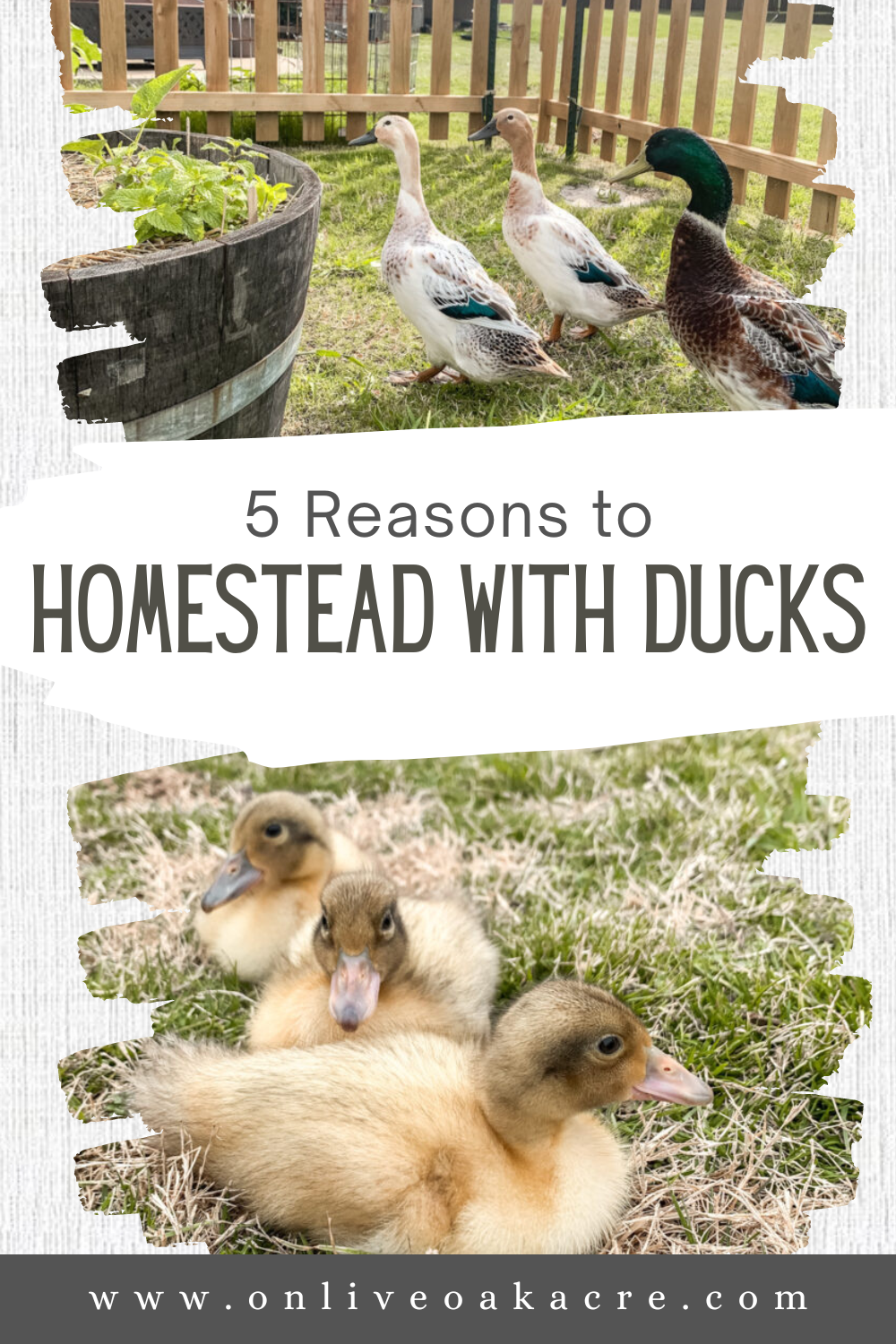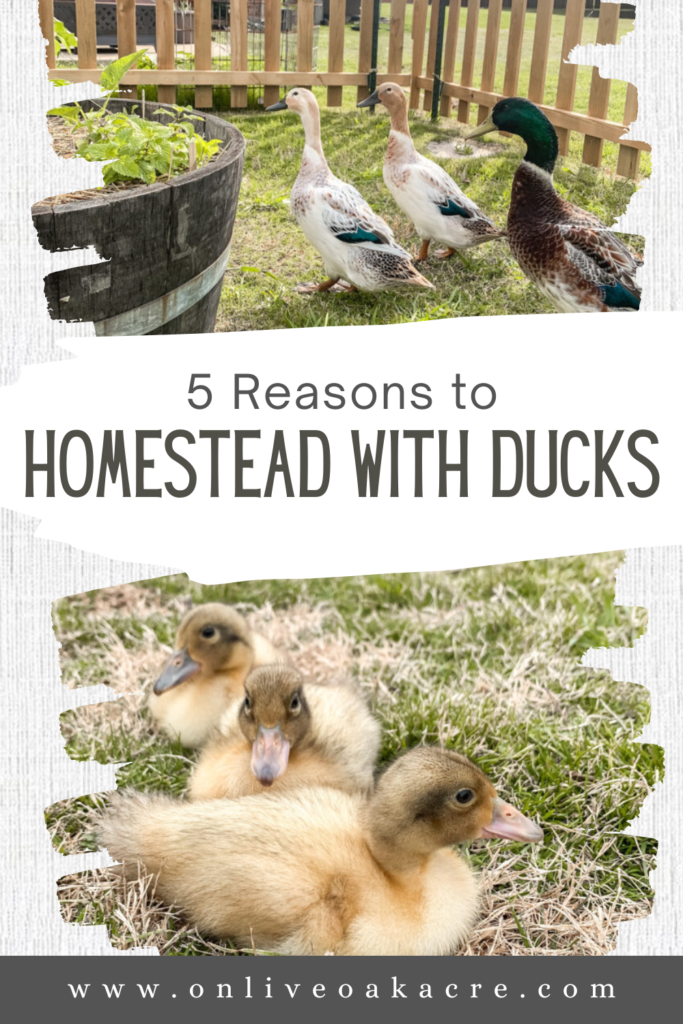
Today I want to share with you my 5 reasons to homestead with ducks!
(Disclaimer: this post may contain affiliate links, which means that I may receive a commission if you make a purchase using these links.)
We have a half acre little urban homestead in North Texas and I wanted to add some egg laying livestock to the farm. In February 2022, we added ducks to our little urban homestead and we have not regretted the decision once. I did a LOT of research before making the decision to purchase ducks from a local breeder. I wanted to be very specific about the breed that we got, so I did not go to tractor supply – although that could have been an option for purchasing them. If you’re new to the site, read about our urban homestead here.
We picked up 3 ducks (one male and two female) two days after they hatched. The breed we purchased is Welsh Harlequin. This breed of domestic duck originated in Wales. In 1949, in Criccieth, Group Captain Leslie bonnet discovered a color mutation among his flock of Khaki Campbells and begin selective breeding for the trait – developing the Welsh Harlequin duck. Their lifespan is about 10 years and they are about 5-5.5 lbs in size. They lived in our master bathroom for two months (it was quite the adventure having them in our bathroom).
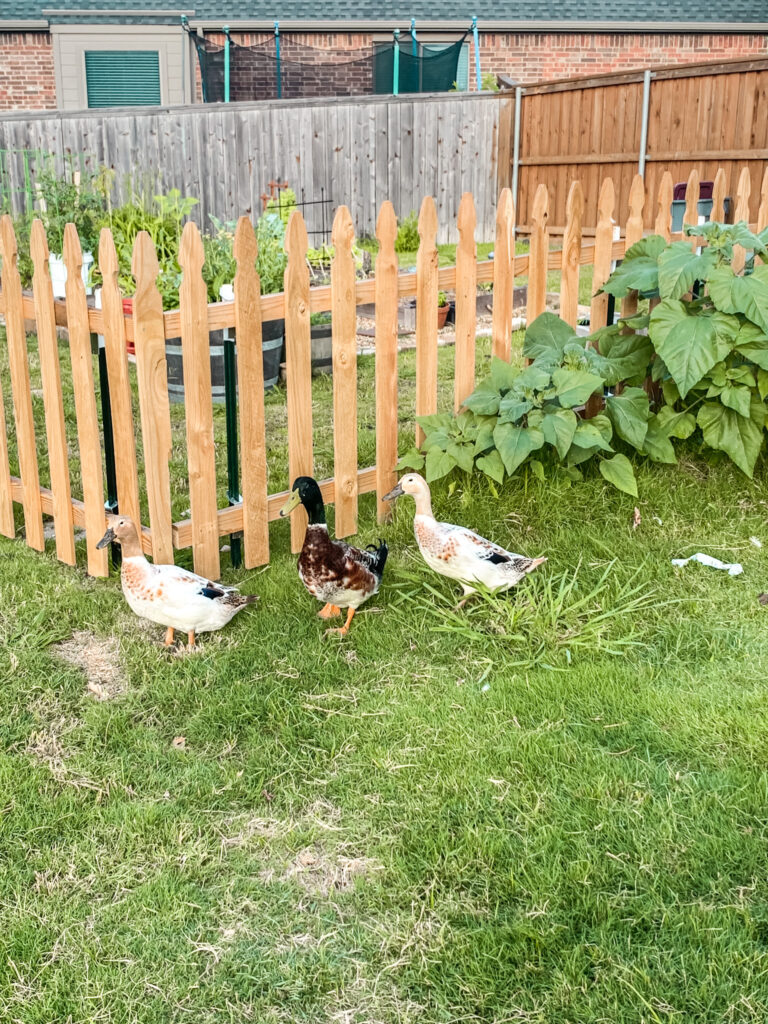
- EGGS!!! Have you seen the price of eggs lately? They are $6.99 a dozen at my local store. Our two female ducks started laying eggs in the summer (I would guess the ducks were about 5 months old when they began laying). They typically lay one egg a day, even through the cold winter months unlike chickens. As far as the taste of duck eggs go, our family loves them. They’re almost 50% larger than a hen’s egg and they contain a large, creamy yolk and have a rich flavor. Also, a duck egg is slightly more nutritious than a chicken egg – mainly due to its size. Duck eggs also contain a wide range of vitamins and minerals – most notably they contain nearly an entire day’s worth of vitamin B12! Read here for the full list of health benefits of duck eggs.
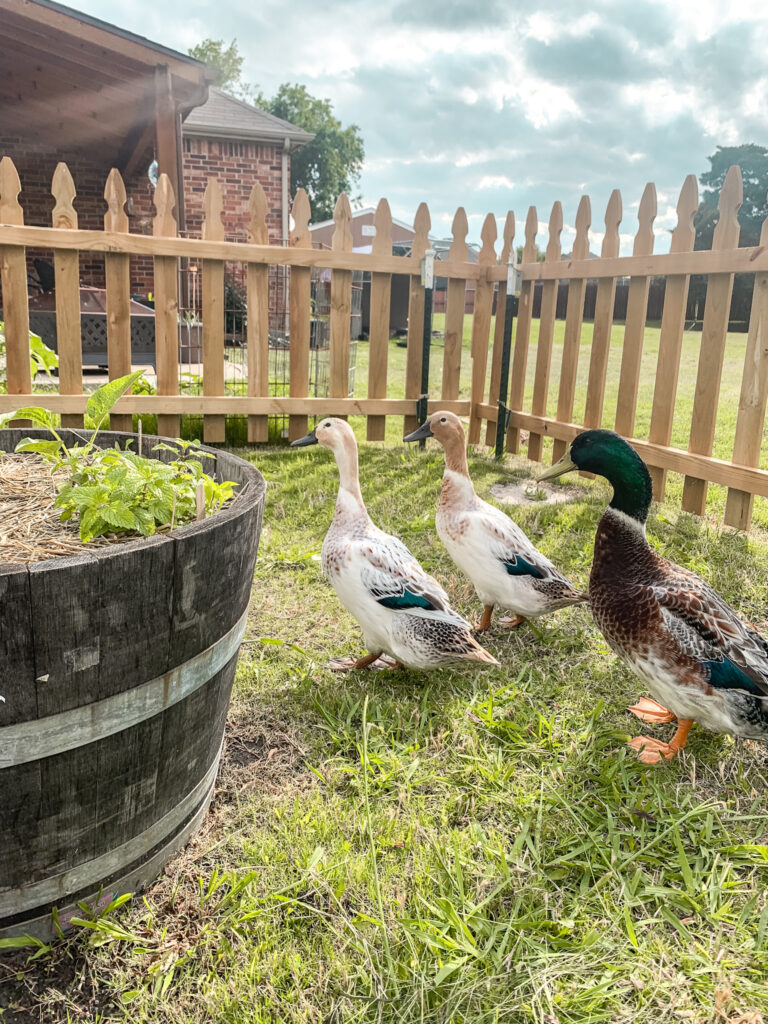
2. They’re excellent gardeners! In North Texas, our yard is full of mosquitoes, gnats and all other types of insects during the summer. Our ducks free range during the day and love snacking on bugs that bounce around in the yard. We noticed the mosquito population has decreased significantly this past summer. Our ducks will eat grubs, caterpillars and garden pests directly off the plants. They also love to root around with their strong bills and stir up the dirt surrounding the plants. They do a great job keeping my veggie garden turned over and leave the actual plants alone.
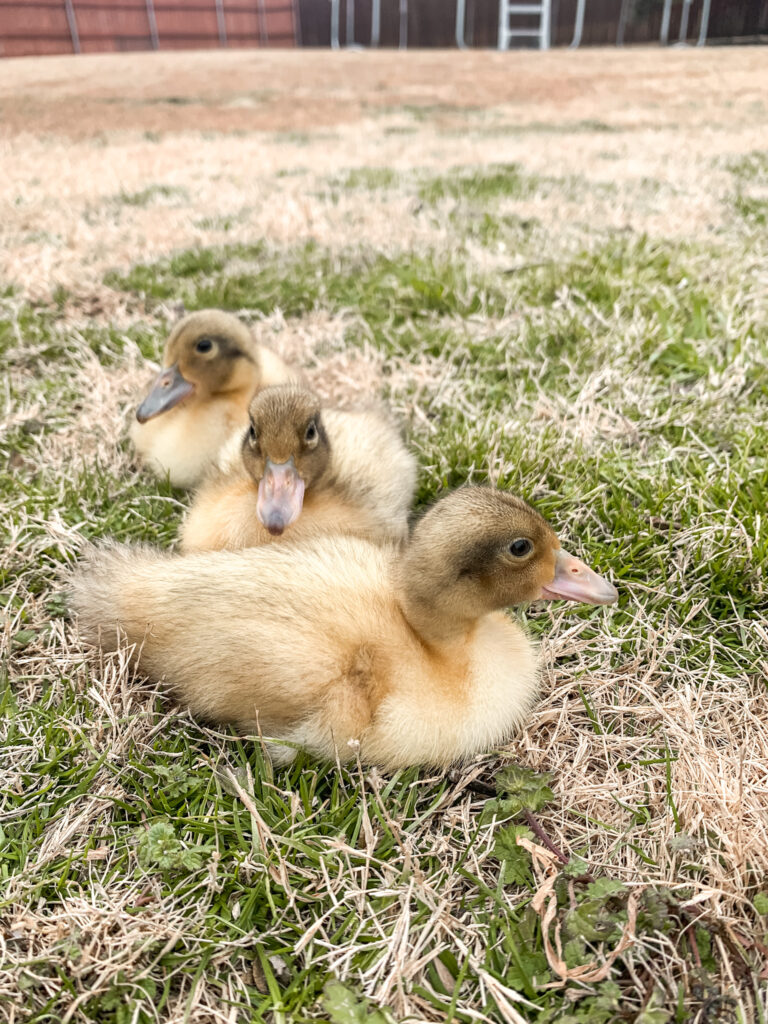
3. They’re SUPER CUTE!! Do I really need to expand on this topic? Little baby ducks are just about the cutest thing I’ve ever seen. And, adult ducks waddling through a yard are really fun to watch too. The breed of duck we have (Welsh Harlequin) have gorgeous white feathers with dark blue/violet markings. We often sit on the back porch and just watch them zoom around and catch bugs. Their little happy quacks are soothing to listen to.
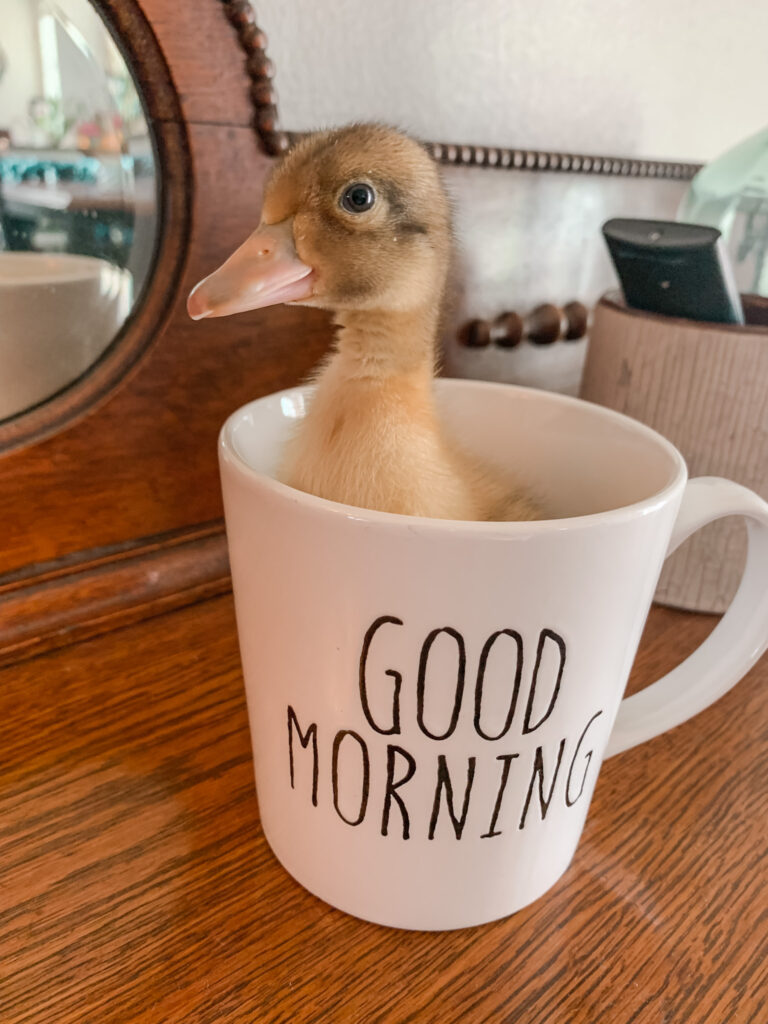
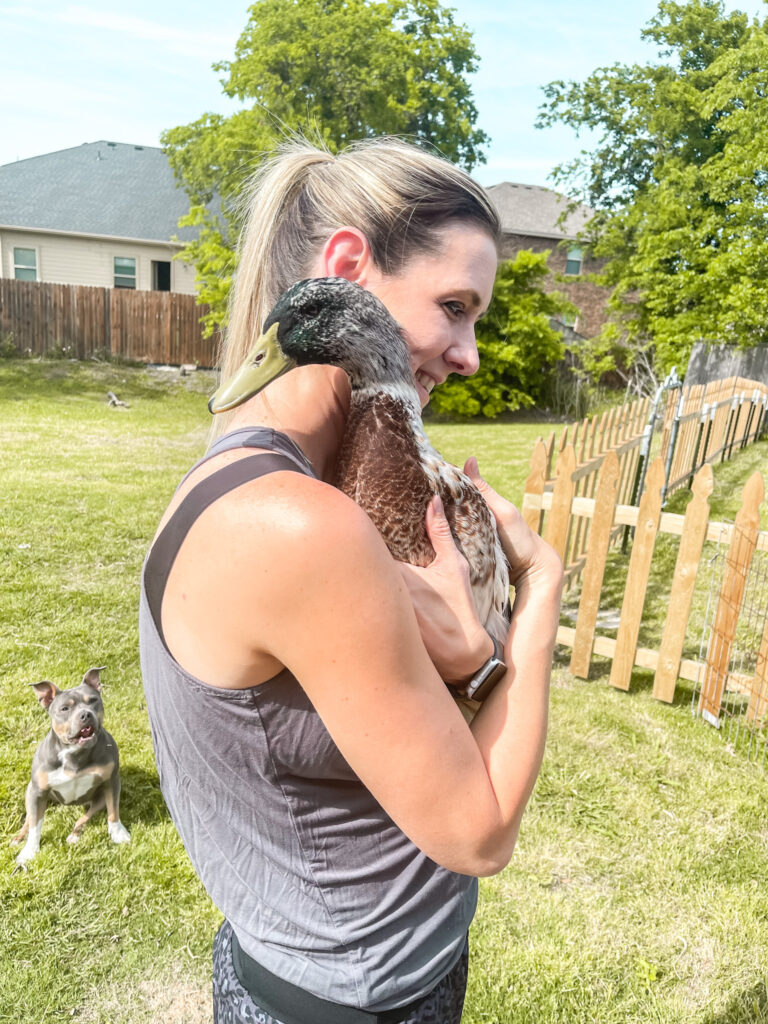
4. They’re healthy animals. When researching whether to add ducks or chickens to our urban homestead, I kept reading over and over again about how ducks are usually healthy, sturdy animals. However, I came upon several articles discussing how easily chickens can become ill or lame. Ducks also do great in cold weather, as long as they have a place to get out of the wind while chickens stop laying eggs in the cold weather and also need a heat source.
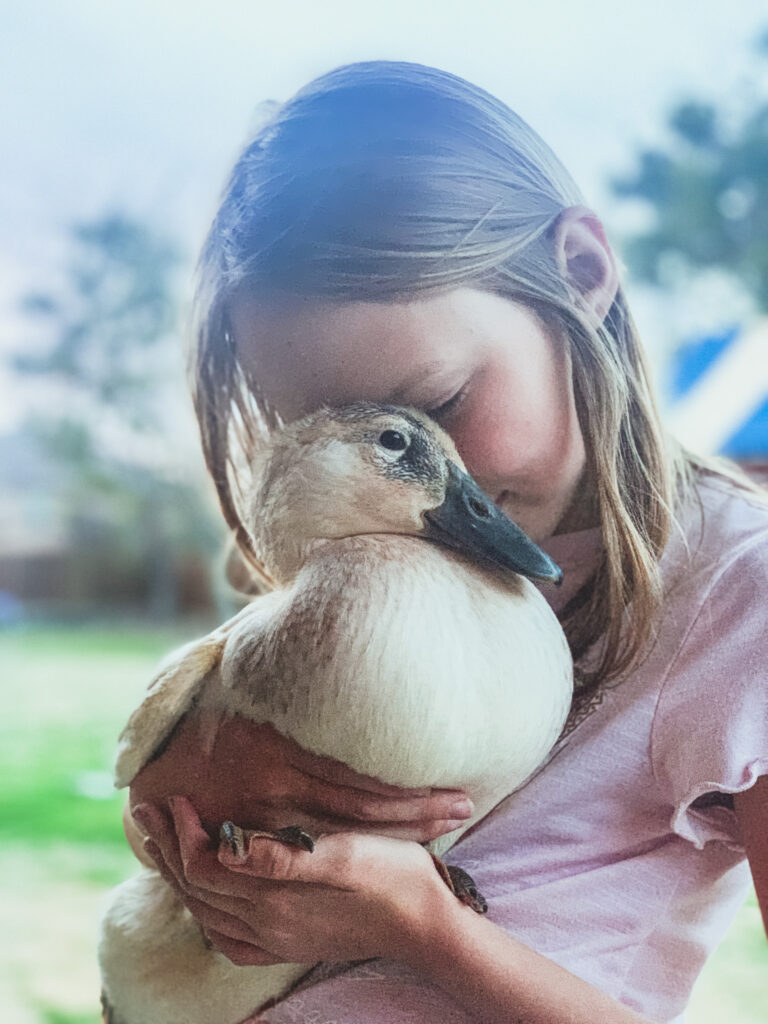
5. Teaching our children responsibility: Ryan is 10 and is the main caregiver of the ducks. She is responsible for feeding them, locking them up at night, letting them out in the morning and gathering their eggs. Ryan knows that the ducks depend on her for care and the daily routine and responsibility has helped her develop a stronger character (especially since she has to care for them when it’s cold or raining or over 100 degrees in our wild Texas climate.
We feed our ducks Purina feed pellets, a 40 lb bag lasts several months. It’s important to feed ducks a blend that includes niacin. Niacin is necessary to a duck’s diet to help produce energy, process protein and fat, support the nervous system and maintain healthy skin and fathers. It’s critical that young ducks get an adequate amount of niacin to help with proper development. Recommended dosing is 10 mg per day for ducklings and 12.5 mg per day for adult ducks.
I hope you consider adding ducks to your urban homestead, they’re a fun little addition!
CONS: There are a few downsides of owning ducks that we’ve discovered: our love our covered porch and poop everywhere on the concrete. I hate that the porch is covered in poop and spend time each week washing it off. A fence to keep the ducks off the porch is on the to-be-built list for this year. Also, our drake Marshall has become aggressive in the last several weeks. He chases the dogs and will nip at our ankles if he feels that we are encroaching on his territory. My husband and I are currently working on ways to stop this behavior (including blocking the drake with a broom and pinning him down to stop the behavior).

